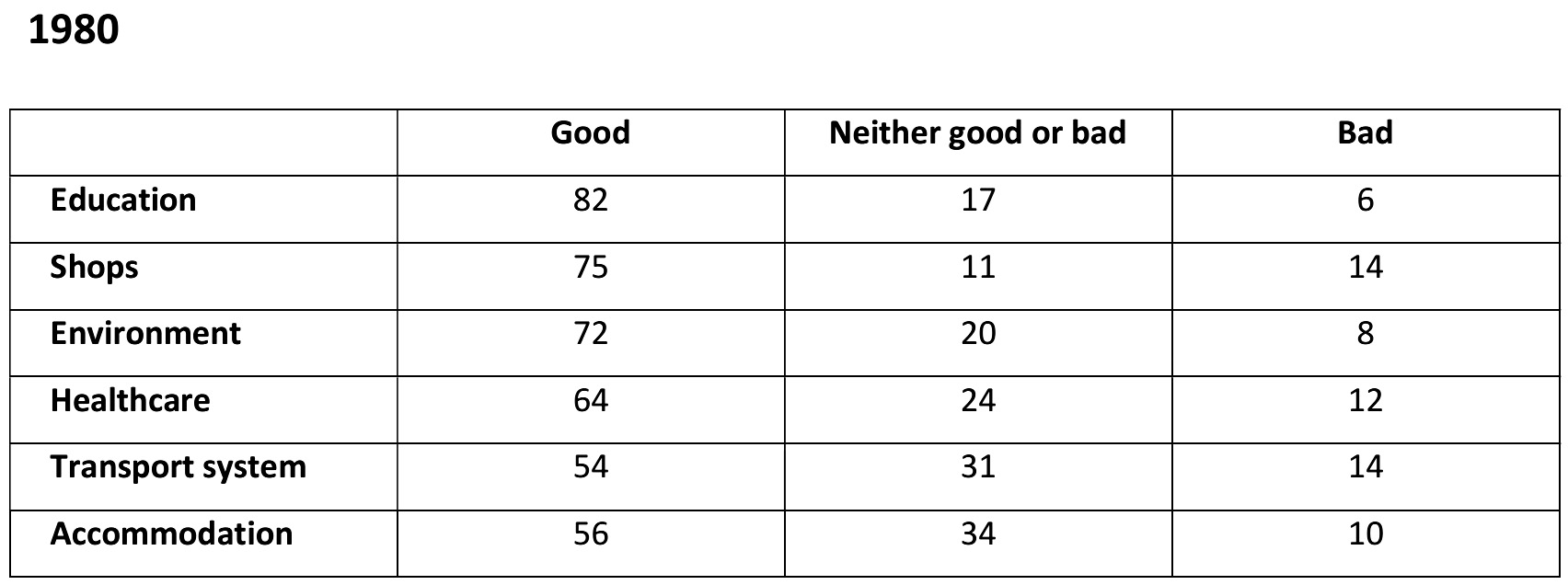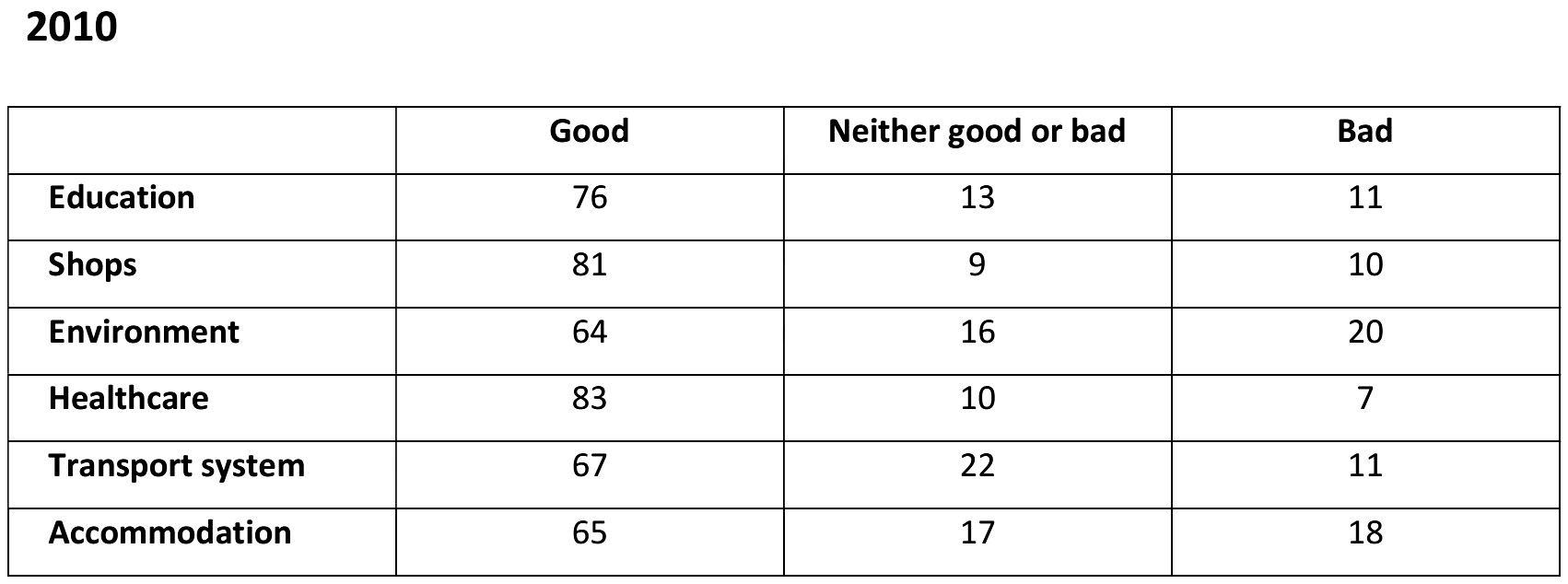IELTS Writing Recent Actual Test 79
WRITING TASK 1
You should spend about 20 minutes on this task
The tables below show results of a survey of urban residents’ opinions related to various aspects of life in 1980 and 2010.
Write at least 150 words.


WRITING TASK 2
You should spend about 40 minutes on this task
Write about the following topic:
The best way to reduce youth crimes is to educate their parents with parental skills. To what extent you agree or disagree?
Give reasons for your answer and include any relevant examples from your own knowledge or experience.
Write at least 250 words.
SAMPLE ANSWER IELTS WRITING TEST 79
WRITING TASK 1The tables compare the data of how residents in an urban area assessed six different aspects relating to their life in the years 1980 and 2010.
Overall, most people had good opinions about all the given categories. Apart from that, education and healthcare were the most highly-ranked, while shops, transport, environment and accommodation received the highest amount of negative feedback.
In 1980, 82% of respondents said that education was good, while 75% and 72% of people rated the shops and environment as also being good. Meanwhile, only 54% and 56% of surveyed individuals said they were satisfied with the transport system and accommodation. They were, however, the two aspects having the greatest number of neutral opinions, 31% for the former and 34% for the latter. Regarding negative feedback, 14% of residents both thought the shops and transport system were bad, which was double the number for negative feedback about education, at a mere 6%.
Over the span of three decades, the data for all aspects considerably changed. In particularly, the opinions of healthcare services and shops were increased, to 83% and 81%, in turn holding the top ranks. Conversely, opinions regarding the environment and accommodation decreased, with the quantity of negative opinions climbing to 20% and 18% respectively, much higher than that of healthcare with at only 7%. Lastly, neutral opinions related to all aspects dropped significantly over the 30 year period.
(232 words)
WRITING TASK 2It is true that more and more young people are getting involved in crime, and the best way to address this critical issue is an ongoing debate. There are many ways to prevent youth crime, one of which is better parenting skills; however, those ways need to be carried out simultaneously if they are to be effective.
On the one hand, parents are the closest people to their children and are the most likely to be able to have an impact on their children’s behavior. In fact, the large majority of youth crime nowadays is the result of inappropriate parenting, and a lack of childcare and crime education. Therefore, it is totally reasonable to say that improving parenting skills will cause a decrease in juvenile offences.
However, education at home alone is not enough since there are a lot of kids who are not willing to listen to their parents. In this day and age, children spend the largest amount of time at school, and
therefore are more likely to be influenced by their teachers or friends. For example, in my home country of Vietnam, many high school students are susceptible to negative peer pressure. This usually leads to the increasing use of alcohol or drugs, all of which are primary contributors to crime at this age. These facts suggest that we should introduce education in the school curriculum about the consequences one may face when committing an offence, as well as help children manage negative peer pressure.
In conclusion, enhancing skills to educate children at home is a good way to curb juvenile delinquencies; however, I think there is no single best way to achieve this as different measures need to be taken at the same time.
(288 words)
